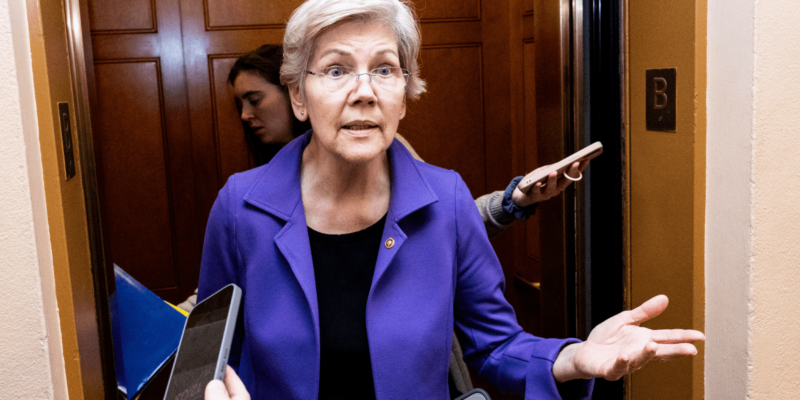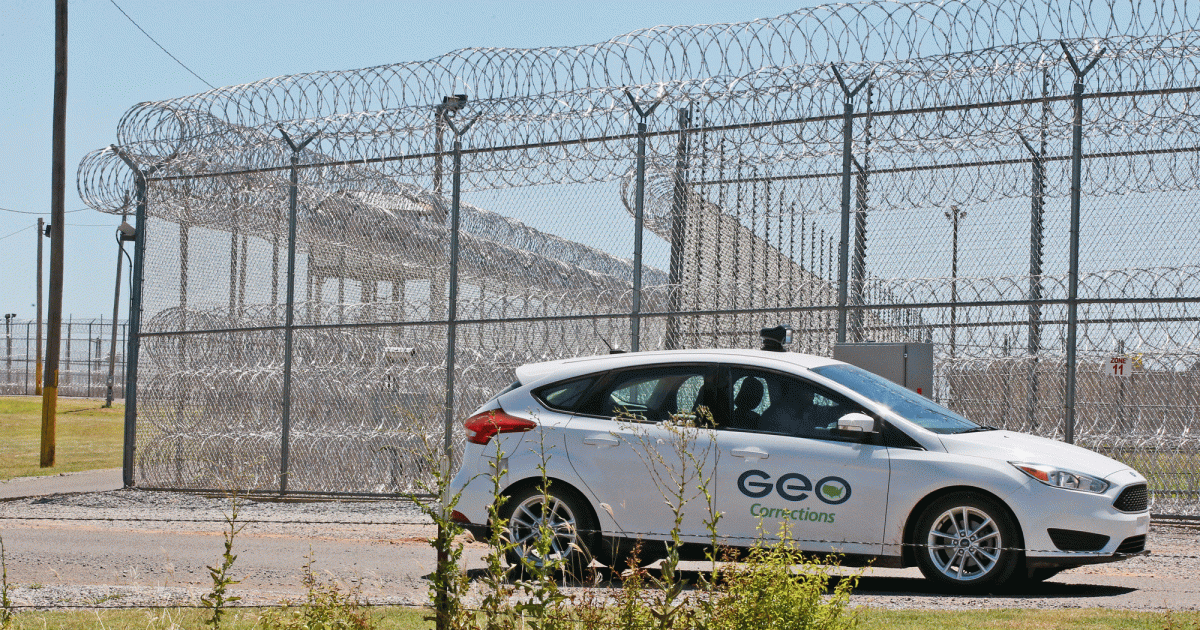
Almost three years ago, during his first week in office, President Joe Biden signed an executive order instructing the Justice Department to stop renewing its contracts with private prison companies. The news was like a glimpse of blue sky for critics of the controversial sector—especially after four years of Donald Trump, who had fostered a cozy, mutually lucrative relationship with the private prison industry.
The order restored an Obama-era policy first announced in 2016—and later suspended by Trump administration—after a damning federal report found that private federal prisons were less safe and less secure than their publicly run counterparts. No longer would the Bureau of Prisons sign deals with corporations to lock up people serving federal prison sentences. Nor would the US Marshals Service, in charge of detaining people while they await trial on federal criminal charges, enter or renew contracts with those same companies.
Or, at least, that was the idea. And over the last three years, the Bureau of Prisons has indeed ended its use of private prisons—moving the roughly 14,000 people it previously held in private facilities into government-owned ones as of last December. But the Marshals Service is a different story. Among the roughly 63,000 people held in USMS custody each night, the ACLU has found that about 1 in 3 still go to sleep in a detention center run by a private prison company. “As far as we can tell, the numbers remained about constant,” says Kyle Virgien, senior staff attorney at the ACLU’s National Prison Project.
So what gives? That’s the question at the heart of a new letter sent by nine Senate Democrats to Marshals Service Director Ronald Davis and Attorney General Merrick Garland on Tuesday, seeking more information on two workarounds USMS has been using to avoid moving its detainees out of private prisons. “The Marshals Service must end its abuse of loopholes to circumvent the order, which allow these private jails to operate unsafe facilities and profit from mass incarceration,” Sen. Elizabeth Warren, the letter’s lead signatory, said in a statement to Mother Jones. “We have a basic responsibility to keep detainees safe.”
The letter notes several ways in which USMS has continued to house people in private prisons. First, the agency has been using municipalities as go-betweens to avoid directly hiring private prison companies. USMS has long made deals with town or county governments to keep USMS detainees in their local jail. But in some cases, that local government then turns around and hires a private prison company as a subcontractor. This pass-through mechanism allowed USMS to keep detainees in the 2,016-bed Northeast Ohio Correctional Center, owned and run by CoreCivic, one of the country’s largest private prison operators. When USMS’s contract with CoreCivic expired in May 2021, USMS signed a new contract with Mahoning County, which in turn signed a deal with CoreCivic.
“This use of a pass-through agreement appears to be the worst of both worlds: detainees remain in the same private facility, yet USMS pays more for the facility’s operation and has even less oversight of conditions at the facility,” the senators write in their letter, citing a March 2023 report on the deal by the Justice Department’s Office of the Inspector General. The watchdog office had found that the new arrangement cost the federal government as much as $6 million extra per year.
Second, the White House Counsel’s Office appears to be granting the USMS some case-by-case exemptions to the executive order. The OIG’s report on the Ohio matter, for instance, noted that USMS told investigators that the White House had approved the arrangement with Mahoning County and CoreCivic. “While we have no reason to doubt such approval, we found no documentation of the approval in the materials provided to us, and we were told that no such documentation existed,” the OIG report stated. But even though there wasn’t a paper trail, the Ohio facility didn’t appear to be the only one: Inspectors also learned the the White House Counsel’s Office had approved another exemption, for the GEO Group-owned Western Region Detention Facility in San Diego, California.
Until this summer, it wasn’t publicly known just how frequently USMS was leaning on either of the loopholes. Then, the ACLU got its hands on a list of US Marshals Service detention centers in response to an unrelated records request, according to Virgien. The list, which is undated but reflects updates as of early 2023, indicates that USMS had pass-through agreements with 40 municipalities in 11 states that allowed it to keep a whopping 13,500 people per night in for-profit detention centers. “The Marshals Service has apparently decided that, despite [the executive order], it can continue to pay for-profit prison companies so long as they are technically subcontractors rather than contractors,” Virgien wrote in his own letter to Davis on September 18.
The list also labeled eight for-profit detention centers as “exempt” from the executive order. Seven of those continued to hold USMS detainees, including some truly massive for-profit facilities like the Central Arizona Detention Center in Florence, Arizona, which held 3,304 people as of last December.
According to the OIG report from earlier this year, and the senators’ letter, USMS wanted to keep its detainees in certain private prisons because alternative locations were hundreds of miles away; the agency wanted to avoid the difficult logistics of transporting people long distances to court, and maintain their access to lawyers, not to mention contact with their families. “This is an appropriate goal,” the senators acknowledge in their letter. “But for many in USMS custody, options exist beyond either remaining in privately run jails or relocating hours away from their families and courts.” In particular, in places where there is no government-run alternative, they argue that the Justice Department should pursue alternatives to detention or release pretrial detainees who do not pose safety or flight risks.
“When the US Marshals Service is complying with this executive order, it should be working to close facilities and allow people to await trial in the community where we know they’ll be safer, and where we know the taxpayers won’t be unnecessarily spending money on locking people up,” Virgien agrees.
The Marshals Service isn’t the only federal agency still leaning heavily on private prison companies. Biden’s executive order, after all, only applied to the Department of Justice, not Immigration and Customs Enforcement. As of July 2023, ICE was using for-profit facilities to house about 91 percent of the roughly 30,000 people it keeps in immigration detention each night, according to a recent ACLU report. Sometimes when agencies like the Bureau of Prisons vacate a for-profit lockup, ICE swoops in and signs its own contract, Virgien says with frustration. “It’s really a shame to see all the work go into shutting something down, and then the federal government just starts paying to put different people there,” he says.
Read the senators’ letter below.















